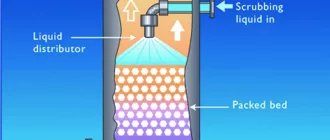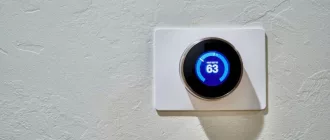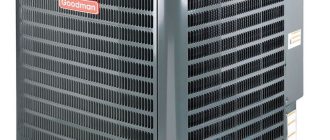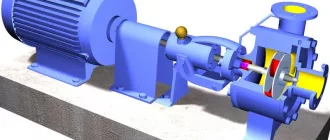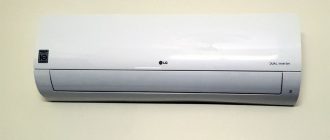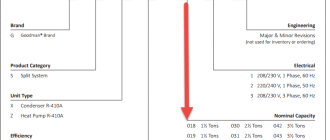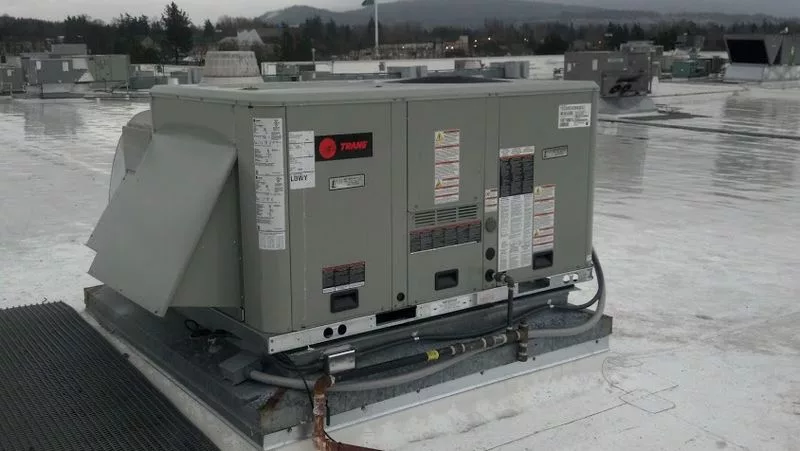
Gas Pack Systems: Benefits, Installation, and Common Issues
Gas Pack Systems offer a reliable and efficient solution for your heating and cooling needs. These innovative systems utilize gas as a clean and cost-effective fuel source, providing numerous benefits for homeowners and businesses alike.
One of the key benefits of gas pack systems is their energy efficiency. By utilizing gas as a fuel source, these systems can achieve higher energy efficiency ratings compared to traditional electric heating and cooling systems. This not only helps reduce your energy consumption but also saves you money on utility bills.
Another advantage of gas pack systems is their versatility in installation. Whether you are looking to install a new system or replace an existing one, gas pack systems can be easily integrated into various settings, such as residential homes, commercial buildings, and industrial facilities.
While gas pack systems offer many benefits, it’s important to be aware of common issues that may arise. One common issue is the potential for gas leaks, which can be hazardous if not detected and addressed promptly. Regular maintenance and inspections by qualified professionals can help mitigate this risk.
Gas Pack Systems: the reliable, efficient, and versatile solution for your heating and cooling needs. Experience the benefits, explore the installation options, and stay informed about common issues to ensure the optimal performance of your system.
Benefits of Gas Pack Systems
Gas pack systems offer numerous advantages for both residential and commercial properties. From efficient performance to cost savings, here are some key benefits of gas pack systems:
1. Energy Efficiency: Gas pack systems are known for their high energy efficiency, providing significant savings on heating and cooling costs. These systems are designed to maximize the use of gas, which is a highly efficient fuel source.
2. Reliable Heating and Cooling: Gas pack systems provide reliable heating and cooling all year round. These systems have the ability to quickly and effectively heat or cool a space, ensuring optimal comfort for occupants.
3. Dual Fuel Capability: Gas pack systems have the advantage of being able to switch between gas and electric power sources. This dual fuel capability allows for greater flexibility and ensures uninterrupted heating and cooling, even in the event of a power outage.
4. Environmentally Friendly: Gas pack systems are considered environmentally friendly due to their lower carbon footprint compared to other heating and cooling options. Gas is a cleaner burning fuel compared to oil or coal, resulting in reduced emissions and a more sustainable choice for your property.
5. Long Lifespan: Gas pack systems are built to last. With proper maintenance and care, these systems can provide reliable heating and cooling for many years. This durability makes gas pack systems a cost-effective investment for property owners.
6. Improved Indoor Air Quality: Gas pack systems help improve indoor air quality by efficiently filtering and circulating air. These systems are equipped with high-quality filters that remove dust, pollen, and other pollutants, creating a healthier environment for occupants.
7. Easy Installation: Installing a gas pack system is relatively straightforward, making it a convenient option for both new construction and retrofitting projects. Professional installation ensures proper functioning and can help avoid any common issues that may arise.
Overall, gas pack systems offer an efficient, reliable, and environmentally friendly solution for all your heating and cooling needs. Their numerous benefits make them a popular choice for residential and commercial properties alike.
Energy Efficiency of Gas Pack Systems
Gas pack systems are not only a convenient and effective way to heat and cool your home, but they are also highly energy-efficient. The installation of these systems can result in significant savings on your energy bills, making them a smart and cost-effective choice for homeowners.
One of the key benefits of gas pack systems is their high energy efficiency. These systems are designed to maximize the use of natural gas, which is a clean and efficient fuel source. Gas pack systems typically have high Annual Fuel Utilization Efficiency (AFUE) ratings, meaning that they convert a high percentage of fuel into usable heat. This can result in substantial energy savings over time.
Another advantage of gas pack systems is their ability to provide both heating and cooling in one unit. This eliminates the need for separate heating and cooling systems, reducing installation and maintenance costs. Additionally, gas pack systems are known for their quick and efficient heating and cooling capabilities, ensuring comfort in your home all year round.
While gas pack systems offer many benefits, it is important to be aware of some common issues that may arise. One potential issue is a gas leak, which can be hazardous and requires immediate attention. Regular maintenance and inspections are crucial to prevent any gas leaks or other safety concerns.
Overall, gas pack systems are a reliable and energy-efficient choice for heating and cooling your home. With their numerous benefits and the potential for significant energy savings, these systems are becoming increasingly popular among homeowners. Consider installing a gas pack system to enjoy the comfort, convenience, and energy efficiency it offers.
Cost Savings with Gas Pack Systems
Gas pack systems offer significant cost savings compared to other heating and cooling systems. Here are some of the key ways you can save money with a gas pack system:
- Lower Energy Bills: Gas pack systems are highly efficient and can help lower your monthly energy bills. They use natural gas, which is generally cheaper than electricity, to generate heat.
- Long Lifespan: Gas pack systems are designed to be durable and long-lasting. With proper maintenance, they can provide reliable heating and cooling for many years, reducing the need for frequent replacements.
- Reduced Maintenance Costs: Gas pack systems require less maintenance compared to other systems. They have fewer moving parts and are less prone to breakdowns, resulting in lower maintenance costs over time.
- Efficient Heating and Cooling: Gas pack systems provide efficient heating and cooling throughout your home. They quickly adjust to the desired temperature, eliminating the need for prolonged heating or cooling cycles that waste energy.
- Tax Credits and Incentives: Installing a gas pack system may qualify you for tax credits and energy efficiency incentives. Check with your local utility provider or government to see if you are eligible for any savings programs.
By choosing a gas pack system, you can enjoy cost savings, increased energy efficiency, and reliable heating and cooling for your home or business.
Environmental Impact of Gas Pack Systems
Gas pack systems have become increasingly common in residential and commercial settings due to their numerous benefits. However, it is important to consider the environmental impact that these systems can have.
One of the key benefits of gas pack systems is their energy efficiency. Gas is a clean-burning fuel, which means that it produces fewer greenhouse gas emissions compared to other sources of energy such as coal or oil. This is a crucial factor in reducing the carbon footprint and combating climate change.
Another advantage of gas pack systems is their installation process. Unlike some other heating and cooling systems, gas pack systems are relatively quick and easy to install. This helps to minimize the disruption to the environment during the installation process.
However, it is essential to address the potential issues that may arise with gas pack systems. One common issue is the release of harmful gases during the combustion process. Although gas is considered a cleaner fuel, it still emits carbon monoxide, nitrogen oxides, and other pollutants. It is important to ensure that these emissions are properly managed and controlled to prevent negative impacts on air quality.
To mitigate these issues, regular maintenance and tune-ups are crucial for gas pack systems. Properly maintaining the system ensures that it operates efficiently and minimizes the release of harmful emissions. It is important to hire qualified professionals for installation, repair, and maintenance to ensure the system’s optimal performance and minimize its environmental impact.
In conclusion, gas pack systems offer several benefits, including energy efficiency and ease of installation. However, it is important to be aware of the potential environmental issues associated with these systems. By addressing these issues and properly maintaining the systems, we can continue to enjoy the benefits of gas pack systems while minimizing their impact on the environment.
Installation Process of Gas Pack Systems
The installation of gas pack systems is a crucial step in ensuring the smooth and efficient operation of your heating and cooling system. Proper installation not only guarantees optimal performance but also minimizes common issues that may arise from improper setup.
Before starting the installation process, it is important to consider the benefits of gas pack systems. These systems provide both heating and cooling capabilities in a single unit, making them an efficient and cost-effective choice for many homeowners. Additionally, gas pack systems are designed to be compact and easy to install, saving valuable space on your property.
During the installation, it is important to address common issues that may arise. One common issue is improper sizing. It is crucial to ensure the gas pack system is properly sized for your specific heating and cooling needs. Undersized systems may struggle to adequately heat or cool your space, while oversized systems may lead to short cycling and decreased efficiency.
Another common issue is poor airflow and ductwork. It is essential to assess the existing ductwork and make any necessary repairs or modifications to optimize airflow. Proper airflow distribution ensures that every room in your home receives adequate heating and cooling, preventing uncomfortable temperature variations.
In addition to addressing common issues, the installation process should also include proper ventilation and exhaust system setup. Proper ventilation prevents any potential build-up of harmful gases, such as carbon monoxide, and ensures the safe operation of the system.
| Installation Process Steps: |
|---|
| 1. Assess the property and determine the optimal location for the gas pack system. |
| 2. Prepare the location by clearing any obstacles and ensuring a stable and level foundation. |
| 3. Install the gas pack system onto the prepared foundation, following the manufacturer’s instructions. |
| 4. Connect the system to the existing ductwork, ensuring proper sizing and sealed connections. |
| 5. Install the necessary ventilation and exhaust system, following local building codes and regulations. |
| 6. Conduct thorough testing to ensure proper operation and efficiency of the gas pack system. |
| 7. Educate the homeowner on proper maintenance and care of the gas pack system. |
By following these steps and addressing common installation issues, you can ensure a successful and efficient installation of your gas pack system. Remember to consult with a professional HVAC technician for expert guidance and assistance throughout the installation process.
Choosing the Right Size Gas Pack System
When it comes to selecting a gas pack system for your home or business, it is essential to choose the right size. An appropriately sized gas pack system will ensure optimal efficiency, performance, and savings in the long run. Here are some factors to consider when determining the right size for your gas pack system:
- Heating and Cooling Needs: Consider the square footage of your space and the climate in your area. A gas pack system that is too small will struggle to adequately heat or cool your space, while one that is too large will cycle on and off frequently, leading to inefficiency and potential maintenance issues.
- Insulation and Air Tightness: Assess the insulation and air tightness of your space. A well-insulated and properly sealed building will require a smaller gas pack system compared to a poorly insulated or leaky one.
- Energy Efficiency: Look for energy-efficient models that have high SEER (Seasonal Energy Efficiency Ratio) ratings. Higher SEER ratings indicate better energy efficiency, which translates into cost savings over time.
- Professional Assessment: Consult with a reputable HVAC professional who can perform a detailed analysis of your space and provide expert recommendations. They will take into account various factors and calculations to accurately determine the appropriate size of a gas pack system for your specific needs.
Remember, selecting the right size gas pack system is crucial to ensure optimal performance, energy efficiency, and comfort. Choosing wisely can save you money on energy bills and prevent common issues associated with improperly sized systems. Invest in a properly sized gas pack system and enjoy reliable heating and cooling for years to come.
Maintaining Gas Pack Systems
Proper maintenance of gas pack systems is crucial for ensuring their long-term efficiency and performance. By following these guidelines, you can minimize common issues and maximize the benefits of your installation.
Regular Inspection: Schedule regular inspections with a professional technician to check for any leaks, blockages, or other potential issues. This will help identify problems early on and prevent them from escalating into costly repairs.
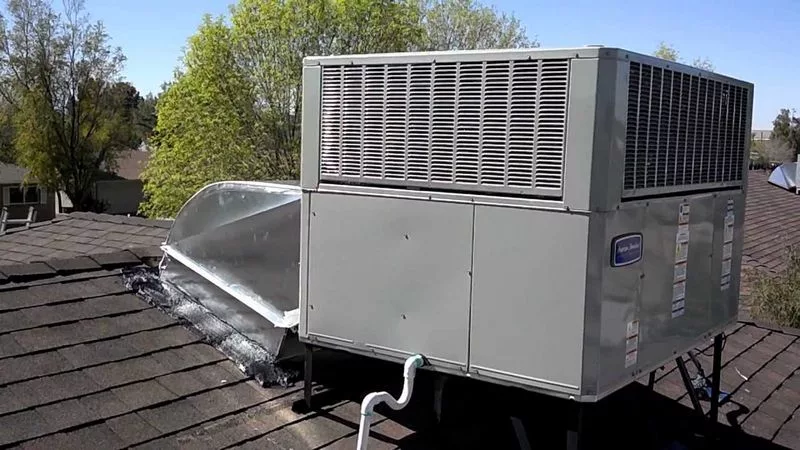
Cleaning and Lubrication: Clean the exterior of the gas pack system regularly to remove any dirt or debris that could obstruct airflow. Additionally, lubricate any moving parts to ensure smooth operation and to reduce wear and tear.
Filter Replacement: Replace the air filters in your system as recommended by the manufacturer. Dirty or clogged filters can restrict airflow, leading to inefficiency and reduced system performance.
Monitoring Carbon Monoxide Levels: Gas pack systems can emit carbon monoxide, a dangerous gas that is odorless and invisible. Install carbon monoxide detectors in your home and regularly check their functionality to ensure the safety of your household.
Professional Maintenance: Schedule annual maintenance visits with a professional technician to perform a thorough inspection, cleaning, and tune-up of your gas pack system. This will help identify any potential issues and ensure optimal performance.
Proper Ventilation: Ensure that the gas pack system has proper ventilation for safe operation. Clear any obstructions in the vents or ductwork to maintain consistent airflow and prevent overheating or other system malfunctions.
Emergency Shut-Off: Familiarize yourself with the location of the emergency shut-off valve for your gas pack system. In case of any major issues or gas leaks, immediately shut off the system and contact a professional technician for assistance.
By following these maintenance practices, you can prolong the lifespan of your gas pack system, reduce the risk of common issues, and ensure its optimal performance for years to come.
Common Issues with Gas Pack Systems
While gas pack systems come with many benefits, they are not without their share of issues. Here are some common problems that can occur with gas pack systems:
- Installation Problems: Improper installation can lead to a variety of issues, such as poor performance, improper airflow, and even safety hazards. It is crucial to ensure that your gas pack system is installed correctly by a qualified professional.
- System Malfunctions: Gas pack systems can experience malfunctions, especially as they age. This can include issues such as faulty ignition, sensor problems, or issues with the control board. Regular maintenance and timely repairs can help prevent these malfunctions.
- Leaking Gas: Gas leaks are a serious safety concern with gas pack systems. Leaks can occur due to damaged or worn-out gas lines, improper fittings, or faulty valves. If you suspect a gas leak, it is essential to evacuate the area immediately and contact a professional for repairs.
- Poor Airflow: Inadequate airflow can lead to uneven heating or cooling and reduced system efficiency. This can be caused by issues such as clogged air filters, blocked vents or registers, or problems with the blower motor. Regularly changing air filters and ensuring proper ventilation can help maintain optimal airflow.
- Efficiency Problems: Gas pack systems should be highly energy-efficient, but various issues can cause a drop in efficiency. This can include problems with the burner, dirty or clogged components, or issues with the thermostat. Regular maintenance and professional inspections can help identify and resolve efficiency issues.
While these issues can occur, it is important to remember that proper installation, regular maintenance, and timely repairs can help prevent or resolve most problems with gas pack systems. If you encounter any issues, it is recommended to contact a qualified HVAC technician for assistance.
Gas Pack System Repair and Troubleshooting
If you’re facing issues with your gas pack system, it’s important to understand the common problems and how to troubleshoot them. By knowing the potential issues and their solutions, you can save time and money by avoiding unnecessary repairs or replacements.
Common Issues:
1. Lack of Heating or Cooling: If your gas pack system is not providing adequate heating or cooling, check the thermostat settings and ensure it is set correctly. Additionally, clean or replace the air filters regularly to ensure proper airflow. If the issue persists, it might be a problem with the compressor or the thermostat itself.
2. Strange Noises: Unusual sounds such as banging, hissing, or rattling might indicate issues with the blower motor, fan, or ductwork. It is advisable to call a professional technician to inspect and repair the system to prevent further damage.
3. Malfunctioning Igniter: A faulty igniter can lead to a gas pack system not igniting or heating properly. In such cases, it is necessary to replace the igniter or call a professional for assistance.
4. Leaking Refrigerant: If you notice refrigerant leaks or ice buildup on the unit, it indicates a potential refrigerant leak. This requires immediate attention from a qualified technician who can locate and fix the leaks, recharge the refrigerant, and ensure proper system functioning.
Troubleshooting and Repair:
1. Check the Power Supply: Ensure that the gas pack system is receiving power by checking the circuit breaker and the on/off switch. Sometimes, a simple power reset can resolve minor issues.
2. Inspect and Clean the Condenser Coils: Over time, the condenser coils can accumulate dirt and debris, reducing the efficiency of the system. Regularly clean the coils using a soft brush or a vacuum cleaner to improve system performance.
3. Clear Obstructions: Check for any obstructions such as leaves, branches, or debris that might be blocking the airflow around the unit. Clearing these obstructions can enhance the system’s performance.
4. Regular Maintenance: It is essential to schedule regular maintenance with a qualified technician to ensure thorough inspections, cleaning, and any necessary repairs. Routine maintenance can prolong the lifespan of your gas pack system and prevent major issues.
Remember, gas pack systems are complex and potentially hazardous if not handled properly. It is always recommended to contact a professional HVAC technician for any repairs or troubleshooting.
By following these troubleshooting steps and staying proactive with maintenance, you can keep your gas pack system running smoothly, enjoying all the benefits it offers for years to come.
Gas Pack System Safety Precautions
When it comes to gas pack systems, safety should always be a top priority. These systems offer numerous benefits, such as efficient heating and cooling, but it’s important to take proper precautions to ensure safe and trouble-free operation.
1. Proper Installation: One of the most critical safety measures is ensuring that your gas pack system is installed correctly. Improper installation can lead to issues such as gas leaks or inadequate ventilation. It’s essential to hire a professional HVAC technician to install the system according to manufacturer guidelines and local building codes.
2. Regular Maintenance: Regular maintenance is crucial to ensure safe and efficient operation of your gas pack system. Schedule annual inspections by a trained professional to check for any potential issues, such as leaks or faulty components. Keep a record of all maintenance and service visits.
3. Carbon Monoxide Detection: Gas pack systems produce carbon monoxide as a byproduct of combustion. This colorless and odorless gas can be deadly if not detected. Install carbon monoxide detectors throughout your home, particularly near bedrooms and sleeping areas. Test the detectors regularly and replace batteries as needed.
4. Proper Ventilation: Gas pack systems require proper ventilation to ensure the safe release of combustion gases. Ensure that the ventilation system, including vents and flues, is clear of obstructions. Regularly check for debris, bird nests, or other blockages that may disrupt airflow.
5. Gas Leak Detection: Gas leaks can be dangerous and pose a significant safety risk. Familiarize yourself with the smell of natural gas and remain vigilant for any unusual odors. If you suspect a gas leak, immediately evacuate the premises and contact your gas provider or emergency services.
6. Read the Manual: Familiarize yourself with the manufacturer’s manual that comes with your gas pack system. It contains important safety instructions, operating procedures, and troubleshooting guides. Follow these guidelines to address common issues and maintain safe operation.
Remember, safety should always be a top priority when it comes to gas pack systems. By following these precautions, you can enjoy the benefits of efficient heating and cooling while ensuring the well-being of your household.
Gas Pack System Warranty Coverage
When purchasing a gas pack system, it’s important to consider the warranty coverage that comes with it. A warranty is a guarantee from the manufacturer that the product will perform as intended and that they will provide support for any issues that may arise during the covered period.
With a gas pack system, the warranty coverage typically includes both parts and labor. This means that if there are any common issues with your system, such as a faulty thermostat or a leak in the unit, the manufacturer will cover the cost of the replacement parts and the labor required for the repair.
Having warranty coverage for your gas pack system can provide several benefits. Firstly, it gives you peace of mind knowing that if anything goes wrong, you won’t have to incur significant expenses to get it fixed. Additionally, it shows that the manufacturer has confidence in the quality and reliability of their product.
It’s worth noting that the length of the warranty coverage may vary depending on the manufacturer and the specific model of the gas pack system. Some warranties may cover the system for a few years, while others may offer longer coverage periods.
When it comes to installation, it’s important to follow the manufacturer’s guidelines to ensure that you don’t void the warranty. Improper installation or neglecting regular maintenance can lead to issues with your gas pack system and may result in the warranty being voided.
In the event that you experience any issues with your gas pack system, it’s important to contact the manufacturer or their authorized service provider promptly. They will be able to provide guidance on troubleshooting the issue and, if necessary, schedule a service appointment to repair the system under warranty.
Having warranty coverage for your gas pack system is essential. It provides peace of mind and financial protection in the event of common issues with the system. Make sure to follow the manufacturer’s guidelines for installation and maintenance to ensure that you can take full advantage of the warranty coverage.
Gas Pack System Upgrades and Accessories
Enhance the performance and functionality of your gas pack system with our range of upgrades and accessories. Whether you’re looking to improve system efficiency, increase comfort levels in your home, or address common issues, we have the perfect solutions for you.
Upgrade Options:
1. Smart Thermostat: Take control of your gas pack system with a smart thermostat. It allows you to easily adjust temperatures, create custom schedules, and monitor energy usage from anywhere using your smartphone. This upgrade can significantly improve energy efficiency and reduce utility bills.
2. Air Purification System: Ensure clean and healthy indoor air quality by installing an air purification system. It captures and eliminates common allergens, bacteria, viruses, and odors, providing you with fresh and breathable air throughout your home.
3. Zoning System: Maximize comfort levels and reduce energy waste with a zoning system. This upgrade allows you to divide your home into different zones and control the temperature independently in each zone, ensuring personalized comfort for every member of your household.
Accessories:
1. Carbon Monoxide Detector: Keep your family safe from this silent and potentially harmful gas by installing a carbon monoxide detector. It alerts you if high levels of carbon monoxide are detected, giving you valuable time to evacuate and seek help.
2. UV Light: Prevent the growth of mold, bacteria, and other harmful microorganisms in your gas pack system by adding a UV light. It sterilizes the air as it passes through the system, ensuring clean and healthy indoor air quality.
3. Surge Protector: Protect your gas pack system from power surges and voltage spikes with a surge protector. It helps prevent damage to sensitive components and ensures reliable and long-lasting performance.
Upgrade your gas pack system with our high-quality options and enjoy improved efficiency, enhanced comfort, and peace of mind. Consult with our experts to determine the best options for your specific needs and budget. Contact us now!
Gas Pack Systems for Residential Use
If you’re looking for a reliable and efficient way to heat and cool your home, gas pack systems are the perfect solution. These systems combine a furnace and an air conditioner into one convenient unit, providing both heating and cooling capabilities for your residential property.
One of the common benefits of gas pack systems is their energy efficiency. Gas-powered systems are known for their high efficiency ratings, which means they provide the same level of comfort while using less energy compared to electric systems. This can help you save on your monthly energy bills and reduce your carbon footprint.
Another advantage of gas pack systems is their easy installation. These systems are designed to be compact and can easily fit on the roof or the ground outside your home. Their all-in-one design also simplifies the installation process. A professional HVAC technician can quickly and efficiently install the system, ensuring it is set up correctly and functioning optimally.
However, like any mechanical system, gas pack systems may encounter common issues over time. Some of these issues include faulty igniters, compressor problems, or refrigerant leaks. It’s important to address these issues promptly by contacting a qualified HVAC technician to diagnose and repair the problem. Regular maintenance and inspections can also help prevent these issues from occurring in the first place.
In conclusion, gas pack systems offer numerous benefits for residential use. From their energy efficiency to easy installation and heating/cooling capabilities, these systems are an excellent choice for homeowners. By understanding the common issues and seeking professional help when necessary, you can enjoy the comfort and convenience that gas pack systems bring to your home.
Q&A:
What are gas pack systems and what are their benefits?
Gas pack systems are combined heating and cooling units that use natural gas as a fuel source. They are popular because they can provide both heating and cooling in one unit, saving space and potentially reducing energy costs. Gas pack systems can be more efficient than separate heating and cooling systems, and they can also provide backup heating during power outages.
How are gas pack systems installed?
Gas pack systems are typically installed on the ground, outside the building. They require a concrete pad or a sturdy base to sit on. The installation process involves connecting the system to the existing gas lines and electrical wiring, as well as connecting the ductwork for air distribution. It is recommended to hire a professional HVAC technician for the installation to ensure proper setup and safety.
What are some common issues with gas pack systems?
Some common issues with gas pack systems include problems with the ignition system, such as a faulty spark igniter or a pilot light that won’t stay lit. Other issues can include a malfunctioning thermostat, clogged air filters, or leaking ductwork. It is important to perform regular maintenance and inspections to prevent and address these issues.
Can gas pack systems be used in all types of buildings?
Gas pack systems can be used in various types of buildings, including residential homes, commercial buildings, and industrial facilities. However, it is important to consider the specific heating and cooling needs of the building and ensure that the gas pack system is sized properly for optimal efficiency. Consulting with a professional HVAC technician can help determine the suitability of a gas pack system for a specific building.
Are gas pack systems energy efficient?
Gas pack systems can be energy efficient, especially when compared to separate heating and cooling systems. They can provide efficient heating using natural gas, which is a relatively clean and affordable fuel source. Additionally, gas pack systems can be designed with high-efficiency components and features, such as variable-speed motors and advanced control systems, to further optimize energy usage. However, it is important to choose a gas pack system with a high energy efficiency rating and properly maintain it for optimal performance.
What are gas pack systems?
Gas pack systems are heating and cooling units that combine both a gas furnace and an air conditioner into one outdoor unit. They are designed to efficiently heat and cool homes or commercial spaces.

